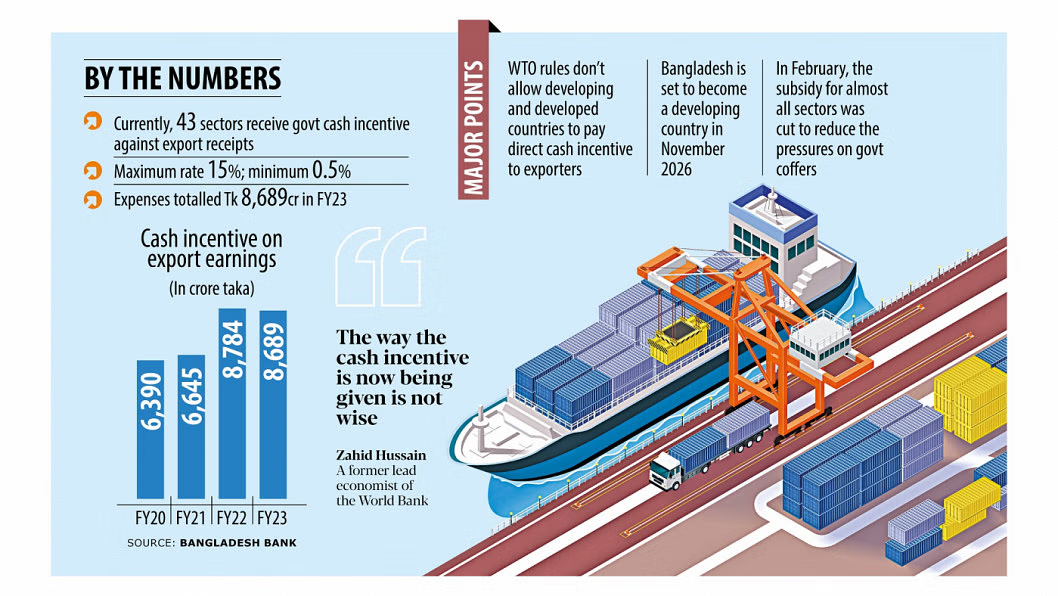Trade experts and businesses on Saturday stressed the devaluation of taka and diversification of products and market to remain competitive in the global readymade garment market. At a discussion on ‘Importance of Product Diversification’, they said that product concentration of the RMG sector in Bangladesh was extremely high and the government should incentivise the sector to explore the potentials of new products for sustainability. At the event, BGMEA data showed that 73 per cent of the country’s total $34.13 billion readymade garment exports is concentrated on five items, prices of 83 per cent of exports range up to $15 per kg while 74.14 per cent of the exports are cotton based. It showed that about 83.34 per cent of the total RMG exports go to the European Union and North America. Devaluation of the local currency, attracting foreign direct investment and adaptation of new technology were important factors that could help to keep the country’s RMG sector competitive in the global market, Policy Research Institute executive director Ahsan H Mansur said. Bangladesh Garment Manufacturers and Exporters Association organised the event at its research cell at Gulshan in the capital. Mansur said that Bangladesh was losing its competitive edge in the global arena as the exchange rate had remained high for a long time while the competitor countries had devalued their currencies to take advantage in the international market. PRI chairman Zaidi Sattar said that the government should immediately take steps to devalue the taka against the US dollar as the export earnings growth had been negative for the last few months. He said that 50 per cent of the incentives provided by the government to the garment sector are given to businesses against ‘deemed export’ or indirect export. ‘The government should review the incentives as these are not bringing about the desired result,’ he said. Centre for Policy Dialogue research director Khondaker Golam Moazzem said that the recent slowdown in RMG export earnings had been caused due to supply-side constraints. ‘Most probably our garment producers have lost their appetite for competition in the global market,’ he viewed. Moazzem suggested that the existing incentive structure for the RMG sector should be reconstituted and the sector leaders would have to instruct manufacturers not to produce some specific low-cost products. H&M country manager Ziaur Rahman said that in order to increase the competitiveness in the global market, Bangladesh would have to work in the areas of product development, waste management in production and industrial engineering. Buyer pressure for reducing prices would increase further in future and the Bangladeshi garment sector would have to face the challenge through product development, he said. BGMEA president Rubana Huq proposed to form a multistakeholder platform comprising businesses, economists and bankers to appeal to the government for policy support for increasing competitiveness of the RMG sector. She recommended that studies on product diversification should be conducted to identify potential products depending on their nature of complexity, industry’s readiness to expand in those categories and to identify mismatch and potentials of diversifying product mix from Bangladesh from the context of buyers.
Home Apparel Trade experts stress taka devaluation, product diversification for RMG sector competiveness
















